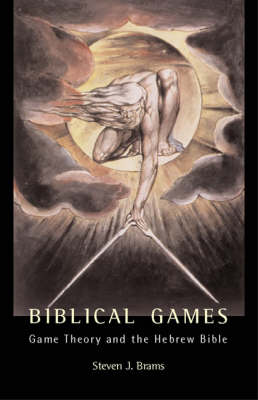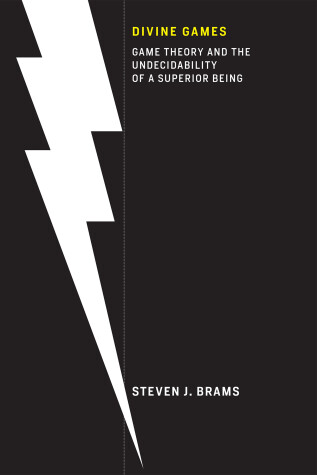The MIT Press
3 total works
How game theory can offer insights into literary, historical, and philosophical texts ranging from Macbeth to Supreme Court decisions.
Game theory models are ubiquitous in economics, common in political science, and increasingly used in psychology and sociology; in evolutionary biology, they offer compelling explanations for competition in nature. But game theory has been only sporadically applied to the humanities; indeed, we almost never associate mathematical calculations of strategic choice with the worlds of literature, history, and philosophy. And yet, as Steven Brams shows, game theory can illuminate the rational choices made by characters in texts ranging from the Bible to Joseph Heller's Catch-22 and can explicate strategic questions in law, history, and philosophy.
Much of Brams's analysis is based on the theory of moves (TOM), which is grounded in game theory, and which he develops gradually and applies systematically throughout. TOM illuminates the dynamics of player choices, including their misperceptions, deceptions, and uses of different kinds of power.
Brams examines such topics as the outcome and payoff matrix of Pascal's wager on the existence of God; the strategic games played by presidents and Supreme Court justices; and how information was slowly uncovered in the game played by Hamlet and Claudius. The reader gains not just new insights into the actions of certain literary and historical characters but also a larger strategic perspective on the choices that make us human.
BACK IN PRINT with a new preface and a new chapter
In this unusual book, first published by The MIT Press in 1980 and now updated with a new chapter, Steven Brams applies the mathematical theory of games to the Hebrew Bible. Brams's thesis is that God and the human biblical characters acted rationally-that is, given their preferences and their knowledge of other players' preferences, they made strategy choices that led to the best attainable outcomes. Beginning with the Creation and focusing on those stories richest in conflict and intrigue, Brams uses elementary game-theoretic tools to elucidate the rational calculations of biblical players and to show precisely the manner in which they sought to achieve their goals. He relies almost exclusively on noncooperative theory, making use of both game tree and matrix forms of games. Brams uses his strategic analyses to build a detailed assessment of God's character and motivations, including the reasons for His frequently wrathful behavior. Brams's insights have application to biblical studies, the philosophy of religion, political theory, and game theory and methodology.In the new chapter, Brams surveys the literature of the past twenty years on political-strategic interpretations of the Hebrew Bible. He also extends the game-theoretic analysis, using the theory of moves, to study a counterfactual situation-what if Abraham had refused God's command to sacrifice Isaac?-and to examine the rationality of believing in a superior being.
A game-theoretical analysis of interactions between a human being and an omnipotent and omniscient godlike being highlights the inherent unknowability of the latter's superiority.
In Divine Games, Steven Brams analyzes games that a human being might play with an omnipotent and omniscient godlike being. Drawing on game theory and his own theory of moves, Brams combines the analysis of thorny theological questions, suggested by Pascal's wager (which considers the rewards and penalties associated with belief or nonbelief in God) and Newcomb's problem (in which a godlike being has near omniscience) with the analysis of several stories from the Hebrew Bible. Almost all of these stories involve conflict between God or a surrogate and a human player; their representation as games raises fundamental questions about God's superiority.
In some games God appears vulnerable (after Adam and Eve eat the forbidden fruit in defiance of His command), in other games his actions seem morally dubious (when He subjects Abraham and Job to extreme tests of their faith), and in still other games He has a propensity to hold grudges (in preventing Moses from entering the Promised Land and in undermining the kingship of Saul). If the behavior of a superior being is indistinguishable from that of an ordinary human being, his existence would appear undecidable, or inherently unknowable. Consequently, Brams argues that keeping an open mind about the existence of a superior being is an appropriate theological stance.


